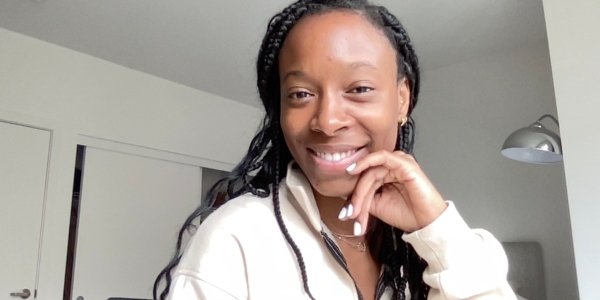
After a year of relative indulgence, Alexis Howard knew she needed a financial “reset” in 2023.
Impulsive trips, Amazon hauls inspired by her TikTok viewing, new clothes, and too many dinners out: The 28-year-old spent more freely than she had ever allowed herself before in 2022, and she wanted to reel it back in.
After reviewing her budget, she decided to challenge herself and try to spend only $50 on nonessentials each month for the entire year. That doesn’t include things like rent, groceries, pet essentials, and investments, but it does include discretionary items and activities like clothes, eating out, food delivery, social outings, and so on.
“In every facet of my life, I felt like there weren’t any boundaries I was putting into place,” Howard tells Fortune. “I was just spending.”
Howard is no stranger to extreme money-saving challenges. In her early twenties, she saved up $20,000 in a year while earning around $65,000 in San Francisco, one of the most expensive cities in the U.S. That led her to learning more about personal finance and investing. Soon she started coaching others on managing their money and eventually became a professional wealth advisor.
She doesn’t have a target amount she wants to save this time around; she just wants to spend less. To that end, $50 is an arbitrary number—there’s no real reason she chose it, except that she wanted it to feel a little painful. “If I’m going to go for a challenge, I’m going to go for it,” she says.
So-called No and Low Buy challenges are popular on social media websites and personal blogs, particularly among women. Howard has never tried one before, and the first couple of weeks of the year were, naturally, the most difficult. In February, she spent a little over $93 on nonessentials when her grandmother died and she traveled to Pennsylvania for the funeral. But she says the goal is to be persistent, not perfect.
@financiallybrave
♬ original sound – Alexis
So far in March, she’s spent just $46 outside of necessities (her largest expense being a $20 meal during a self-care night). Not spending money is becoming her default.
“After you do a cleanse, you kind of want to binge,” she says. “But now that we’re over halfway through March, it feels intuitive. When your budget is so tight, you really, really have to be clear on what matters to you.”
Howard has instituted a number of lifestyle changes to help her meet her goal, but she hasn’t cut all the joy from her life. If anything, she feels more enriched from being more intentional with her time and energy. Cutting spending doesn’t have to be unpleasant; Howard prefers to think of it as bringing her closer to financial abundance rather than being restrictive. She’s learning that the essentials are more than enough.
The art of discipline
Creating a budget and being selective about the media she consumes have helped Howard keep her spending low. She has unfollowed influencers, unsubscribed from email marketing lists, and even deactivated her personal Instagram account so she wouldn’t feel left out by what friends and acquaintances are doing.
“I don’t need to see that someone is in Rome right now. Those things won’t keep me focused,” she says. “A huge part of my success has been focusing on being disciplined and feeling good and keeping my energy levels high.”
Her closest friends are all supportive of her endeavor. They’re opting to go for walks, split a bottle of wine at home (it counts as part of the grocery budget) before going to bars, and look for other free activities in the Bay Area. She also takes the bus, walks more, and gives herself gel manicures at home. She does not have children, which, of course, helps.
All of this said, she’s calling it a challenge for a reason. There are some nights and weekends where she hasn’t done much so as not to spend money. It can be a little boring. To stay motivated, she reads self-help books and pictures what she’ll feel like when she’s successful.
Keeping her food spending in check is the hardest aspect of the challenge for her. She often relied on Seamless and Uber Eats for convenience, but now she’s focused on prepping quick and easy meals and having plenty of snacks on hand. She hasn’t spent any money on food delivery yet this year.
Those who also want to cut their discretionary or impulse spending don’t have to go to such extreme lengths, she says—it’s simply not realistic for most people. But reviewing credit card and bank statements can help you see if there’s any area where you can save even $100 or so a month. “Usually that’s motivation enough for people,” she says.
Howard has found the experiment more than just financially beneficial, it’s also been spiritually motivating. “You’re breaking your dependence on overconsumption. You’re learning to enjoy life basically for free,” she says.
So this is her year to focus on building financial discipline. Come 2024, she’ll reassess where she is and where she wants to go next.
“I’m rolling with the punches as they come. We’ll see where the path takes me.”




